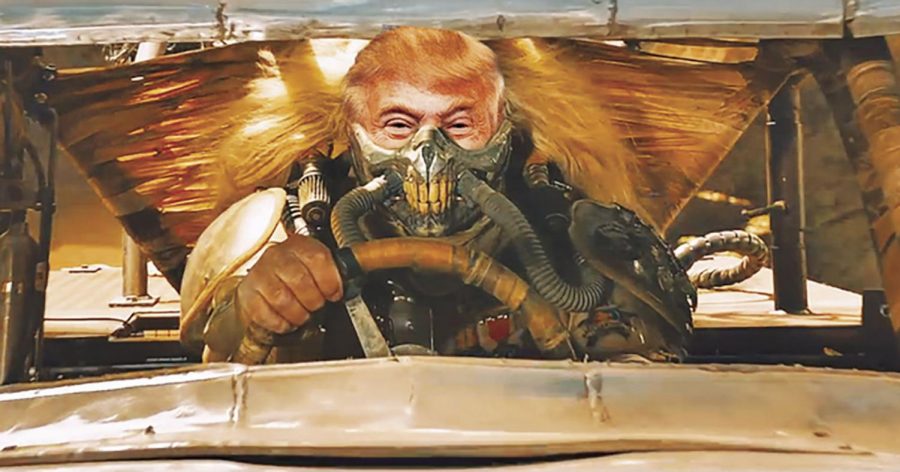Seeking the end of the world: Some possible upsides to the apocalypse
Humanity has always had some perverse attraction to the end of times; for whatever reason, our own destruction is a flame to which we flock like furry, stupid moths, which would adequately explain the election of Donald Trump into our highest political office. Why vote for him if not from some internalized desire for our end?
And sure enough, Trump’s administration has progressed in such a way as to propel
us towards our inevitable end: cutting funding to arts, education, and the environment, all things which are kind of important to humans. Especially given the fact that much of this funding has been, in turn, siphoned into our military.
And as tensions rise, the trees fall and the atmosphere continues to deteriorate while Republicans line their pockets, I fantasize about what our apocalypse will look like.
It’s something that has been popularized in many media, from the hit TV show “The Walking Dead,” to the less popular “Book of Revelations,” but while some would relish in releasing our base aggression in a zombie apocalypse, or perhaps being relinquished of responsibility in our reduction to primordial soup, I would prefer an alternative apocalyptic world.
Perhaps one of the most dissatisfying aspects of humanity and of being human is the innate adverse effects we promote on the world around us, and thus, I think the best version of the end would be one in which humans are nearly extinct. Not in a way of having to fight constantly to survive or living in squalor or suffering or anything of that sort but rather one in which we can gradually and graciously accept our decline.
Two examples of this are “Adventure Time” and “Yokohama Kaidashi Kikō.” The former contains a whimsical and bright world with creatures that replace humans after their fall, and the hosts a quiet and peaceful way of life that follows the end, even for the remaining humans. “Adventure Time” features protagonists Jake and Finn going on adventures and rediscovering the understated joy of it all, the way that people can still find meaning in existence even in a world so far removed from our own.
“Yokohama Kaidashi Kikō,” on the other hand, benefits from being a slightly more realistic view of the future, not filled necessarily with monsters and magic but sometimes the mundane, such as working at a coffee shop at the twilight of humanity.
These two, however different they might seem, illustrate a world in which nature has reclaimed the land taken from her, and those remaining are no longer creatures of manipulation or control, but ones that simply learn to live comfortably in their place, to coexist. It seems to be a way that is lost to our modern world.
And if we can have that balance, well, at least something good came of this election.







